Transforming Infrastructure from Nearly Nothing to a Comprehensive Facility
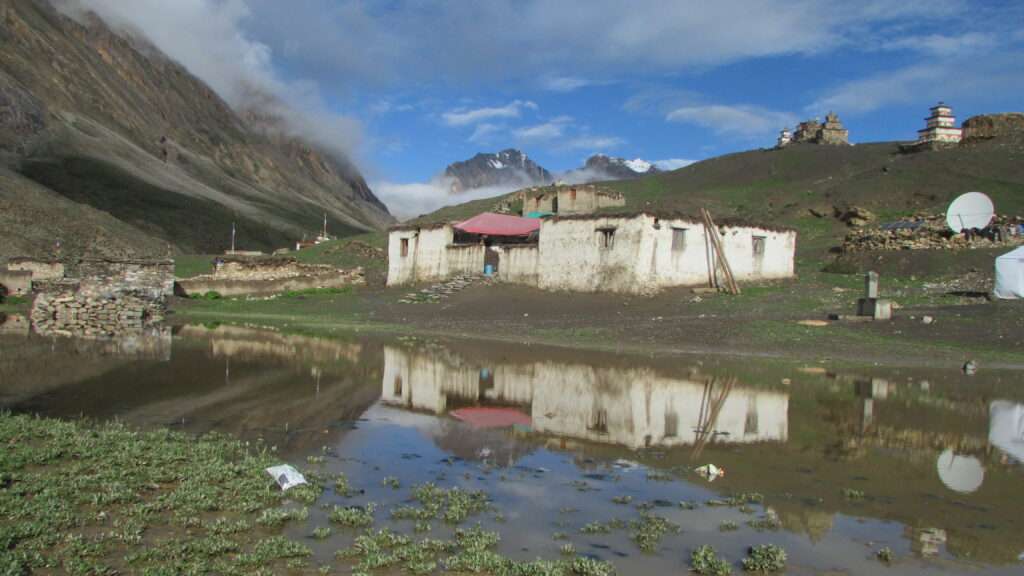
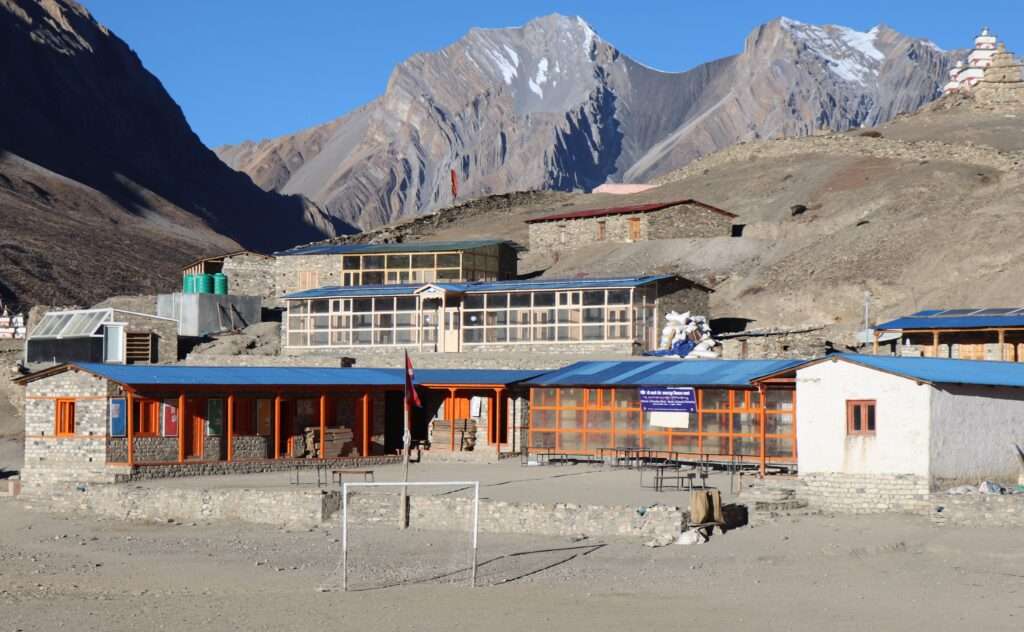
In addition to operating the school, Dolpo Tomorrow continually enhances its infrastructure by adding new facilities each year. Over the past 10 years, in collaboration with various NGOs and sponsors, we have successfully transformed the school’s infrastructure from nearly nothing to a comprehensive campus featuring 12 new classrooms, four teacher bedrooms, a health post, a washhouse, and two greenhouse vegetable gardens for the kitchen. Furthermore, we equipped the school with other essentials such as furniture, digital learning tools, solar power plants, kitchenware, and bedding facilities.
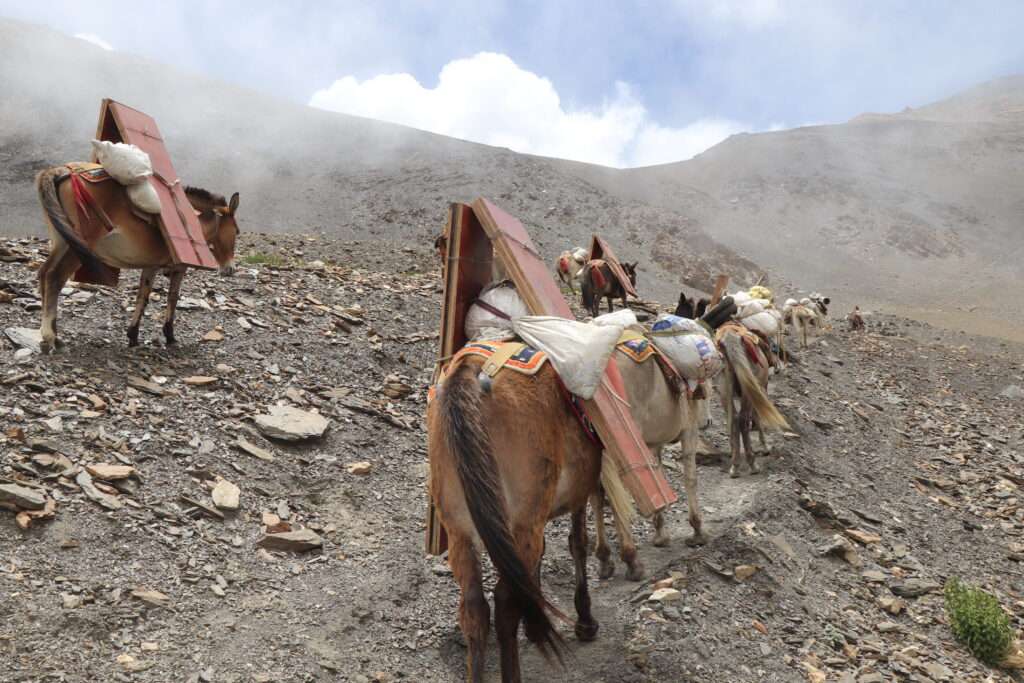
Constructing in Dolpo is exceptionally challenging due to its remote location and harsh climate. The work window is limited to May to October, with extreme cold and blocked access the rest of the year. Procuring materials, primarily from Kathmandu and Pokhara, involves lengthy journeys on challenging terrains by mules, horses, and porters due to the lack of motor roads connecting to Chharka. The journey is further complicated by high-altitude passes, narrow paths, unbridged rivers, and snow. Local materials like stone, gravel, and sand are available, but all other construction supplies must be brought in from afar, making the process time-consuming and arduous.
Despite these challenges, Dolpo Tomorrow has undertaken the mission of enhancing the school’s infrastructure by adding new facilities every year:
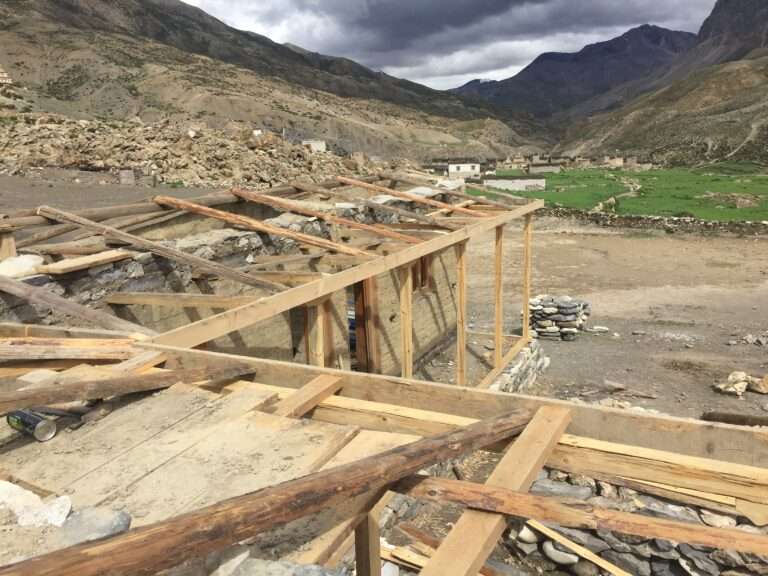
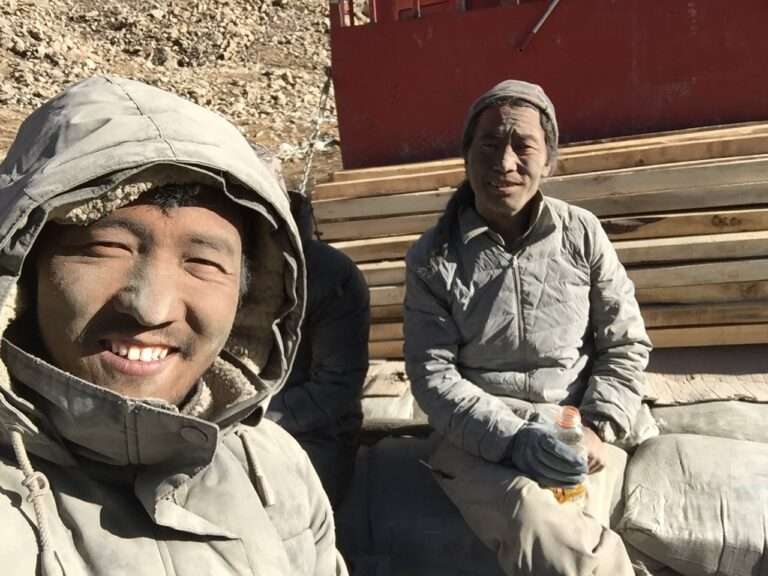
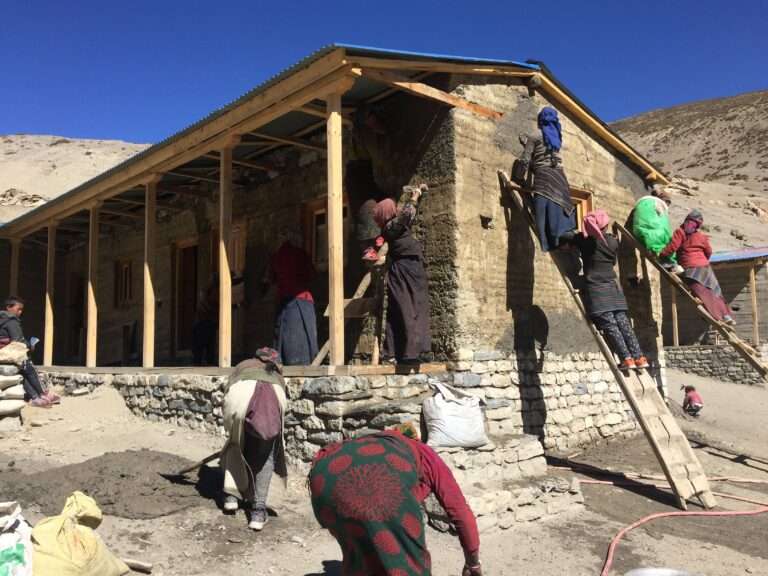
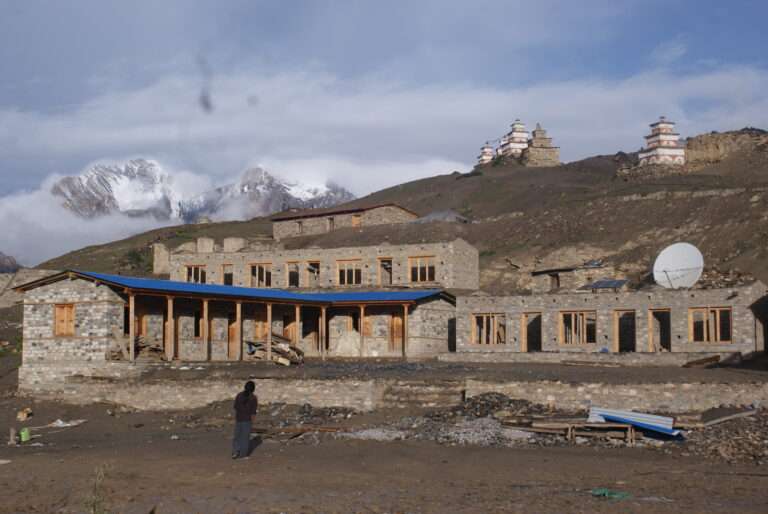
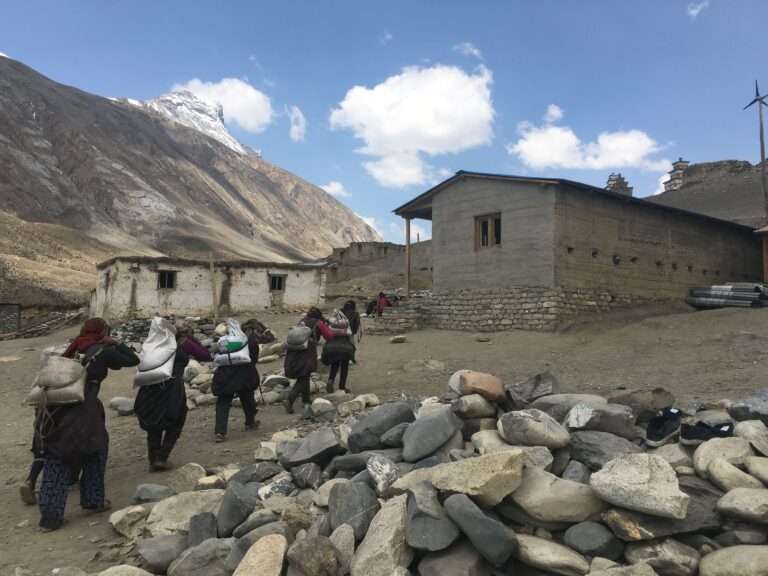

The completion of these buildings and facilities has significantly upgraded the school’s infrastructure capacity. Combined with other structures supported by various donors and the government, the school can now operate nine different classrooms and allocate space for other school administration sectors, including a kitchen, storeroom, office, library, computer lab, and bedrooms for approximately a dozen resident teachers.
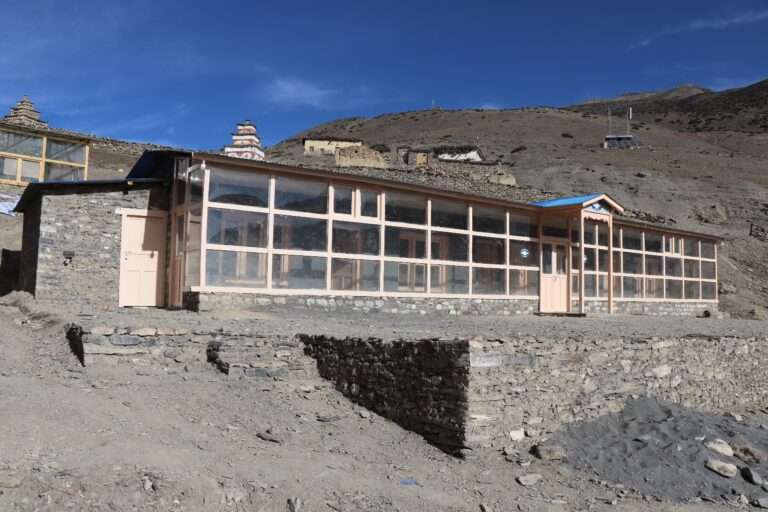
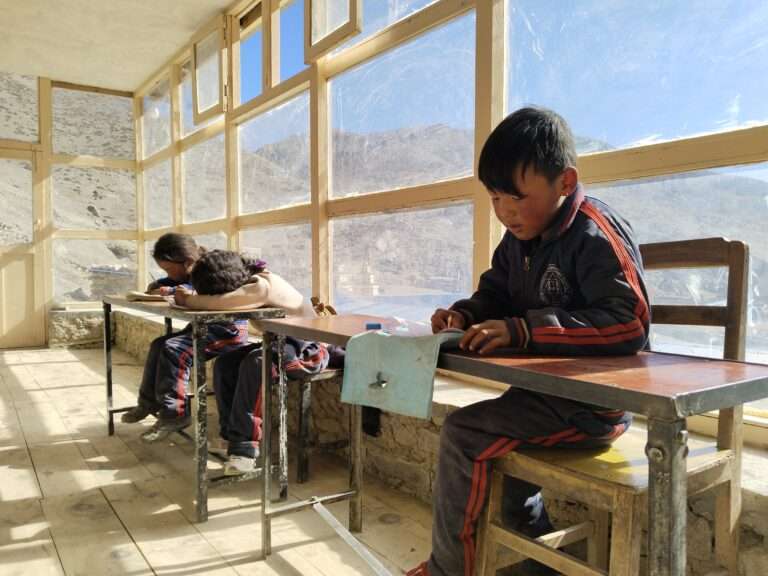
Thanks to this building, alongside a similar 3-room building funded by Die Bambusschule e.V through Chay Ya Nepal, Chharka Bhot Basic School extends its winter session, conducting classes continuously and efficiently for two additional months, November and December. With ongoing financial support from Nepalhilfe Beilngries e.V., we plan to convert the building into a proper hostel by equipping it with 20 bunk beds, tables, benches, storage cabinets, and all other necessary interior equipment this year. Additionally, there are plans to pave the front yards and passages of this and other buildings at the school to create a clean and mud-free environment.
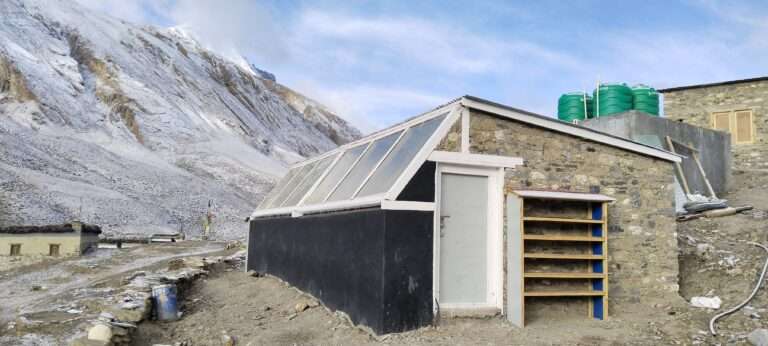
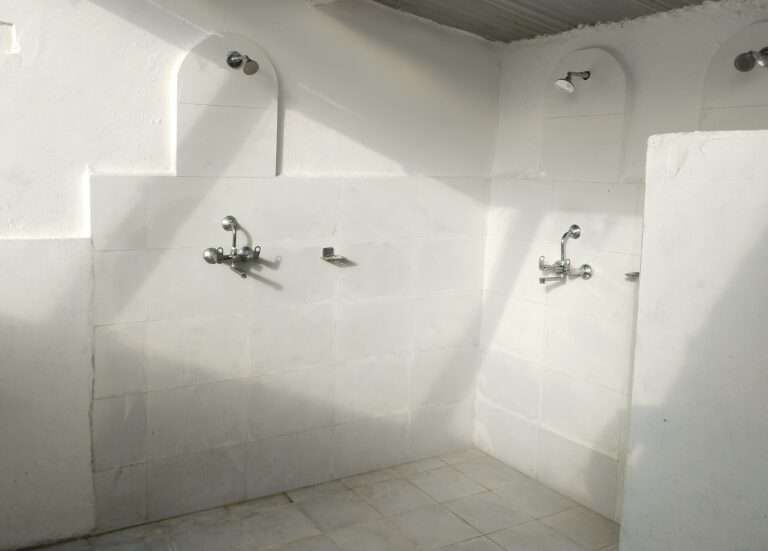
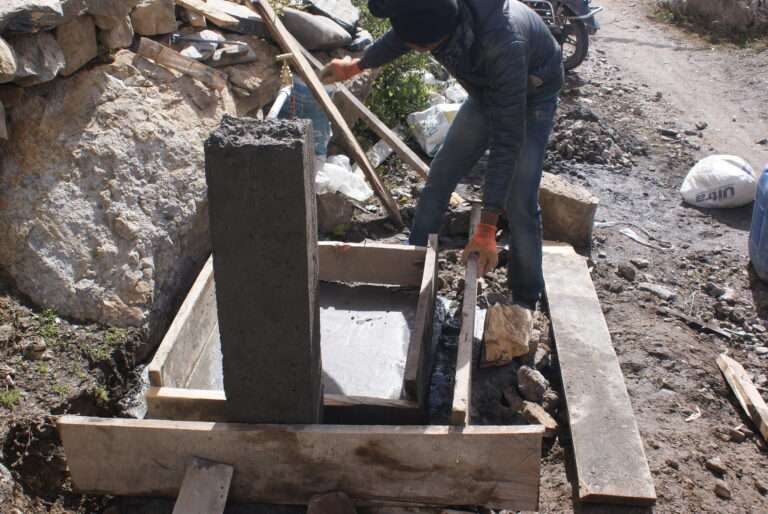
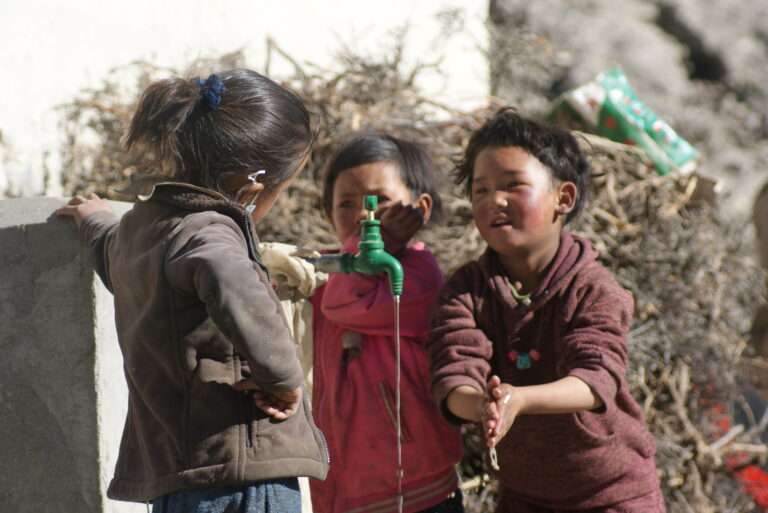
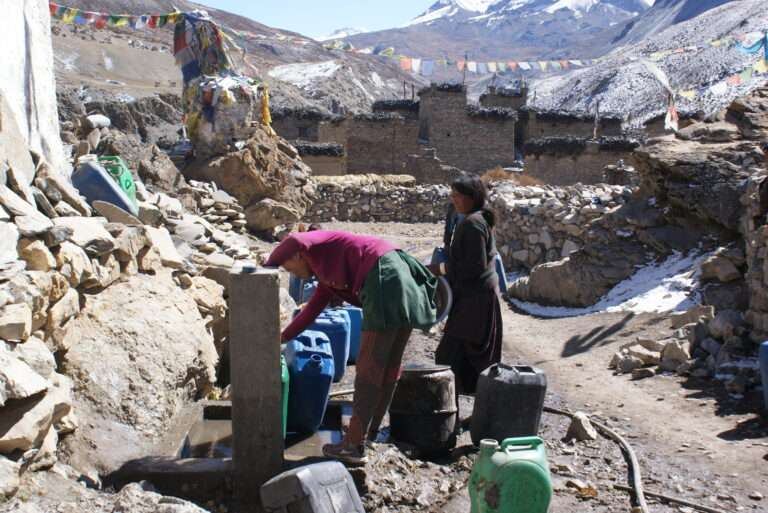
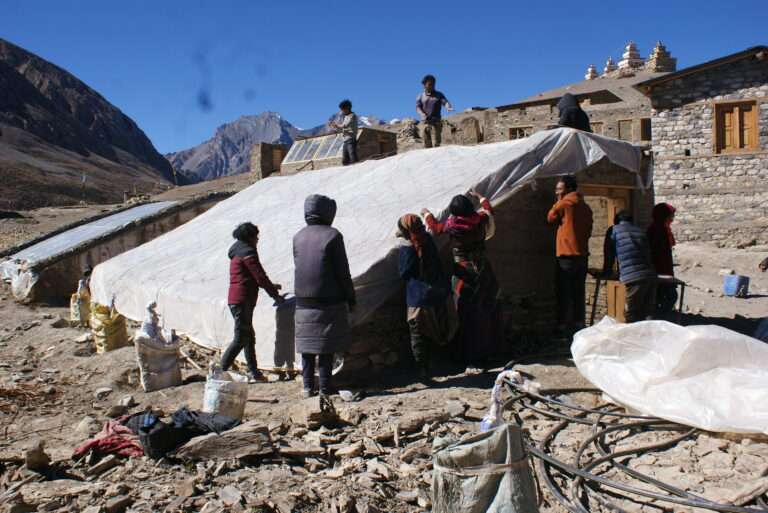

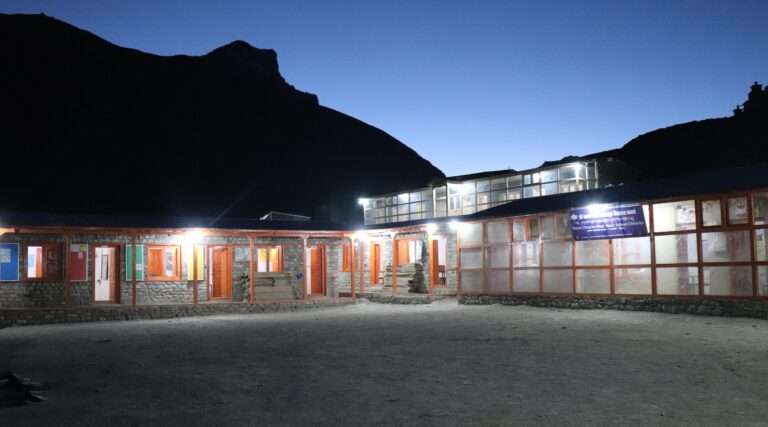
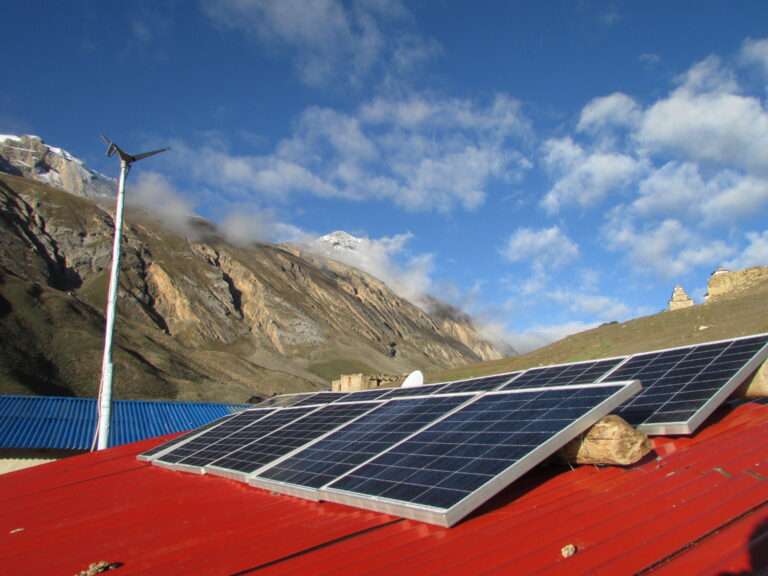
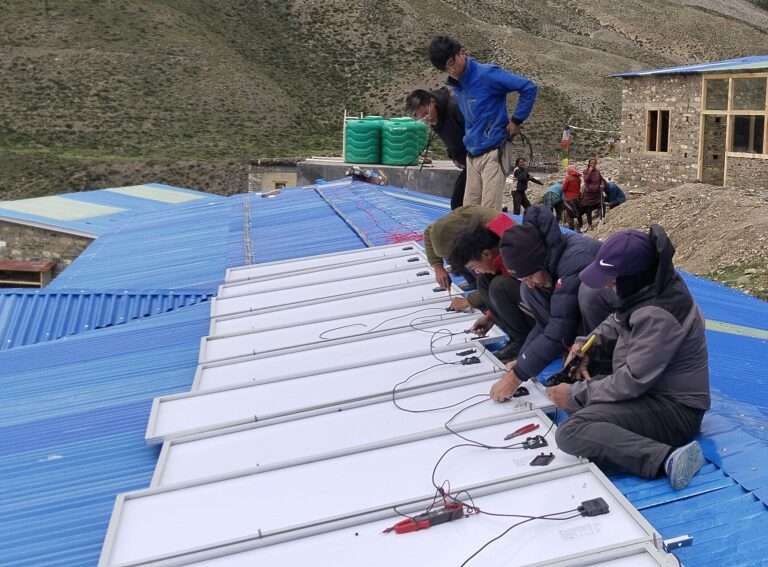
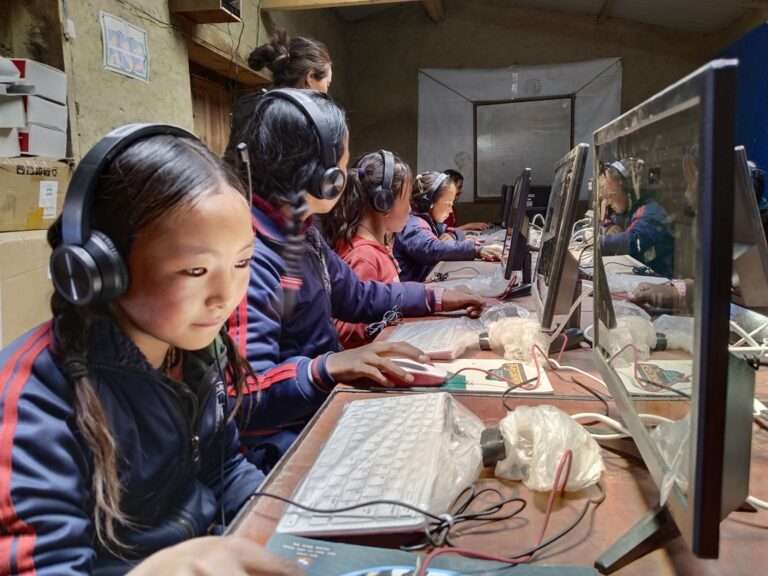
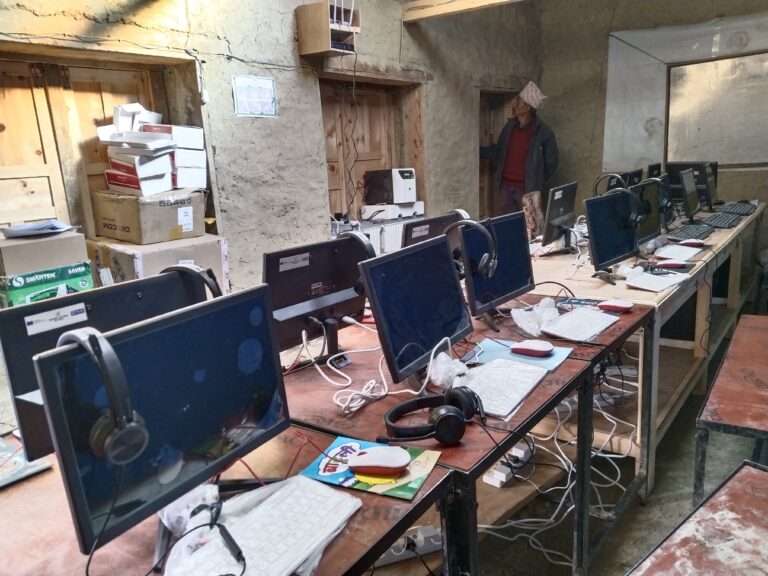
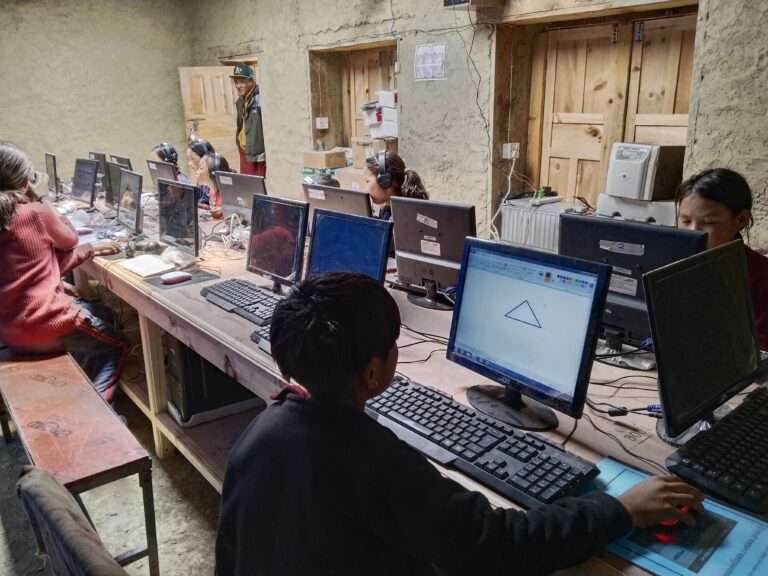
Join us in shaping a brighter future for the children of Dolpo. Your support can make a lasting impact on education and community development. Together, let’s ensure that no child is left behind. Donate now and be a part of our journey towards a thriving and empowered community.
+977 9843390217
dolpo.tomorrow@gmail.com info@dolpotomorrow.org.np
Website Created by: The Genesis